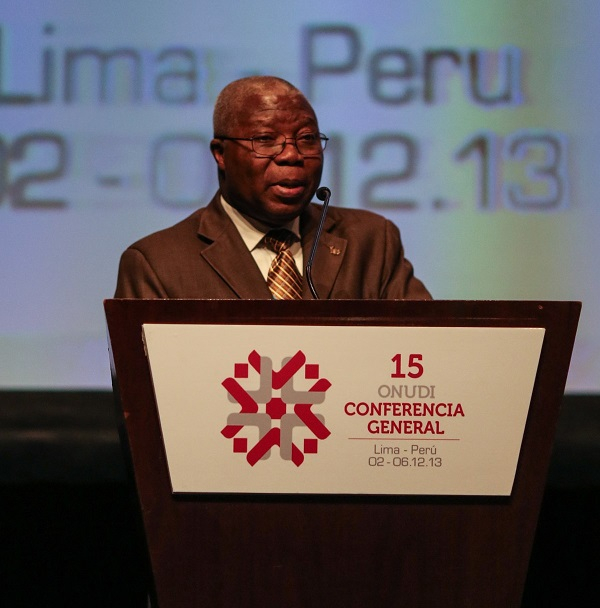From Mallam Issa to Sedina Tamakloe: Politicians convicted for causing financial loss to the state

One law that Ghanaian politicians, especially those in government, fear is Section 179A of Chapter 4 of the Criminal Code, 1960 (Act 29), which defines ‘causing financial loss’ as a ‘special offence’ punishable by a maximum jail term of 10 years.
Currently, three prominent figures of the opposition National Democratic Congress (NDC), including Ghana’s Parliament Minority Leader, Dr. Cassiel Ato Forson, are facing prosecution for causing financial loss to the state in transactions they oversaw while the party was in power.
Many politicians in Ghana’s 4th Republic have already been caught for causing financial loss to the state. Around twelve politicians have been convicted for this offense, with most of them being members of the NDC and prosecuted by the ruling New Patriotic Party.
Here is a list of politicians who have been convicted for causing financial loss to Ghana:
Mallam Yusif Issa:

Former Minister of Youth and Sports under the Kufuor government, Mallam Issa, was prosecuted after funds under his care mysteriously disappeared.
He was sentenced to four years in prison for two counts of stealing and causing financial loss to the state.
Additionally, he was fined $1,400 by the court, with a further 12-month jail term if he failed to pay. Mallam Issa was also instructed to repay the missing $46,000 within a month, or face another year in jail.
He was released in July 2023 after former President Kufuor granted amnesty to 2,000 inmates to mark Ghana’s 43rd anniversary as a republic.
Richard Kwame Peprah:

Richard Kwame Peprah, a former Finance Minister under the late President Jerry John Rawlings’ government, was convicted of causing financial loss to the state in 2003.
He received a four-year prison sentence in April 2003 for his involvement in the Quality Grain scandal.
Peprah was charged with conspiracy and causing a $20 million financial loss to the State in a rice project at Aveyime in the Volta Region.
Victor Selormey:
Victor Selormey, a former Deputy Finance Minister under the Rawlings government, was also convicted for his role in the Quality Grain Scandal.
He was one of four Rawlings government appointees prosecuted by the John Agyekum Kufuor government for causing financial loss to the state in the Aveyime rice project.
Selormey was ill while serving his jail term at Nsawam Prison, and the government remitted the remainder of his sentence to mark Ghana’s 48th independence anniversary.
Ibrahim Adam:
Ibrahim Adam, a former Minister of Food and Agriculture, was also convicted for causing financial loss to the state in 2003.
He was one of Rawlings’s appointees found guilty of causing financial loss to the state in the Aveyime rice project.
The former Minister for Food and Agriculture was sentenced to two years in prison.
Dan Abodakpi:

Dan Kwasi Abodakpi, a former Minister of Trade and Industry and ex-Member of Parliament for Keta, was also sentenced to 10 years in jail in 2007 after being convicted of causing financial loss in the Aveyime rice project.
Abodakpi faced charges of conspiracy, defrauding, and willfully causing a $400,000 financial loss to the State, resulting in his lengthy prison term.
Sedina Tamakloe Attionu:

Sedina Tamakloe Attionu, former CEO of MASLOC (Microfinance and Small Loans Centre) during the John Dramani Mahama administration, was handed a 10-year prison sentence by an Accra High Court in April 2024.
Tamakloe Attionu, tried in absentia, was found guilty on 78 counts of causing financial loss to the state, stealing, conspiracy to steal, money laundering, and causing loss to public property in violation of the public procurement law.
Her legal troubles began in 2017 after an EOCO investigation revealed fraudulent fund disbursements during her tenure.
She was accused of embezzling GH₵3.19 million and deliberately causing a GH₵1.97 million financial loss to the state, as well as incurring unauthorized financial obligations of GH₵61.74 million for the government.
What the Criminal Offences Act 1960, (ACT 29) says about causing financial loss to the State:
The phrase ‘causing financial loss’ is mentioned as an offence under the Criminal Code, 1960 (Act 29).
More specifically, Chapter 4 of the Criminal Code, which is named “Special Offences”, indicates what constitutes financial loss to the state.
Section 179(A) states that a person caught intentionally causing loss, damaging, or injuring property of any public body or any agency of the State commits the offence.
More specifically, in relation to the crimes the politicians mentioned above are being accused of, Section 179 (A2) states that a person who, in the course of any transaction of government business, intentionally causes loss is guilty of the offence.
Below are the exact words of the Criminal Offences Act:
CHAPTER 4—SPECIAL OFFENCES
Section 179A—Causing Loss, Damage, or Injury to Property.
(1) Any person who by a wilful act or omission causes loss, damage, or injury to the property of any public body or any agency of the State commits an offence.
(2) Any person who in the course of any transaction or business with a public body or any agency of the State intentionally causes damage or loss, whether economic or otherwise, to the body or agency commits an offence.
(3) Any person through whose wilful, malicious, or fraudulent action or omission— (a) the State incurs a financial loss; or (b) the security of the State is endangered, commits an offence.
(4) In this section, “public body” includes the State, Government of Ghana, public board or corporation, public institution, and any company or other body in which the State or a public corporation or other statutory body has a proprietary interest.
Punishment for causing financial loss to the state:
Section 179(D) of Act 29 prescribes the punishment for causing financial loss, including a fine of not less than five million cedis and/or a prison term not exceeding ten years.
“A person convicted of an offence under any of the offences specified in this Chapter is liable on conviction to a fine of not less than ¢5 million or imprisonment not exceeding ten years or both.”
Source: www.ghanaweb.com





